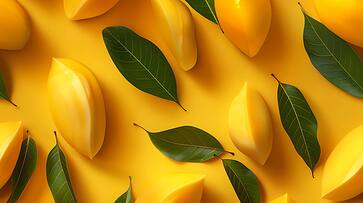The celebration of National Mango Day began in 1987. Held annually on July 22, this day aims to promote the import of mangoes and raise awareness about their benefits and diverse varieties.
We've long heard that mango is the ‘king of fruits.’ This title isn't given without reason; its delicious taste and variety make it popular not just in India but around the world. National Mango Day is celebrated every year on July 22. Today, let's explore the history of the mango and discover which other countries, besides India, also regard it as the king of fruits.
History
Mango, scientifically known as Mangifera indica, has a history spanning thousands of years. It is believed that mango cultivation began around 5000 years ago in Southeast Asia, between the fourth and fifth centuries BC. Some traditions even suggest that a mango orchard was presented to Buddha and that the fruit was introduced to spice trade in Kerala in 1498. By 1700, mangoes became widely popular in Brazil, and by 1740 in the West Indies, with its popularity continuing to grow around the world.
National Mango Day
The celebration of National Mango Day began in 1987. Held annually on July 22, this day aims to promote the import of mangoes and raise awareness about their benefits and diverse varieties.
King of fruits
Mango is celebrated as the king of fruits not just in India but also in several other countries. In Bangladesh, the mango tree is honoured as the national tree. Moreover, mango is the national fruit of both Pakistan and the Philippines.
Rich in Vitamin A, C, and D, mangoes help in digestion, boost immunity, and support eye health. They also benefit skin and hair due to their high vitamin C and A content.
Last Updated Jul 22, 2024, 1:22 PM IST









![Salman Khan sets stage on fire for Anant Ambani, Radhika Merchant pre-wedding festivities [WATCH] ATG](https://static-gi.asianetnews.com/images/01hr1hh8y86gvb4kbqgnyhc0w0/whatsapp-image-2024-03-03-at-12-24-37-pm_100x60xt.jpg)
![Pregnant Deepika Padukone dances with Ranveer Singh at Anant Ambani, Radhika Merchant pre-wedding bash [WATCH] ATG](https://static-gi.asianetnews.com/images/01hr1ffyd3nzqzgm6ba0k87vr8/whatsapp-image-2024-03-03-at-11-45-35-am_100x60xt.jpg)


